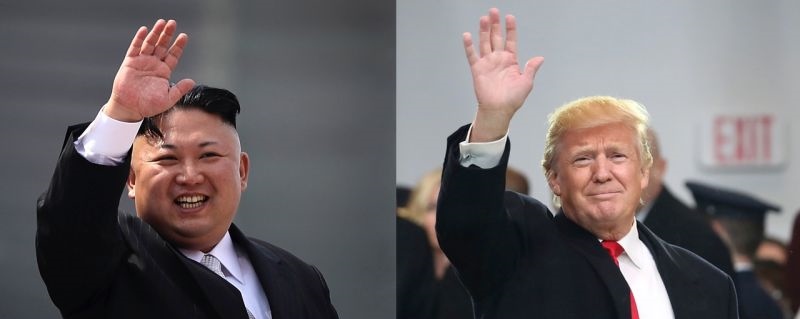Make a deal – says Trump
November 7, 2017 | Expert Insights

US President Donald Trump has urged North Korea to “come to the table” to initiate dialogue over its nuclear program.
Trump is currently on an official visit to five nations in Asia.
Background
The relationship between the US and North Korea has always been fractious. During the war between North and South Korea in 1950, US forces successfully intervened on behalf of South Korea. To this day, there are 28,500 American soldiers, sailors, airmen and Marines in South Korea as part of United States Forces Korea (USFK).
In August 2017, North Korea flew two missiles over Japan. The nation called it the “first step” in its Pacific operations. In September 2017, the nation has conducted its sixth nuclear test to date. It was the nation’s most powerful test yet. According to reports, the country detonated a hydrogen bomb that could be mounted on an intercontinental ballistic missile. The UN imposed another round of fresh sanctions in response. These sanctions would cripple the North Korean economy and would hit its exports in the energy and textile sector. The country stands to lose billions of dollars in revenue. In 2017, North Korea has launched 22 missiles in 15 tests.
Trump has taken an aggressive stance while countering North Korea. Recently he said that the country “will be met with fire and the fury like the world has never seen.” In response to North Korea’s activities, the United Nations imposed two rounds of fresh sanctions. There is now a ban on textile exports and a call to reduce oil imports by 30%.

Analysis
US President Donald Trump is currently on an official visit to Asia during which he will visit Japan, South Korea, China, Vietnam and the Philippines. When he was in Japan, he discussed strategies on how best to counter the challenge posed by North Korea. He struck a defiant tone noting that that the era of “strategic patience” was over. "Some people said that my rhetoric is very strong," he said during remarks at a joint news conference in Tokyo alongside Japanese Prime Minister Shinzo Abe. "But look at what's happened with very weak rhetoric over the last 25 years. Look where we are now."
Abe said that he agreed with Trump adding, “"For more than 20 some years, the international community attempted dialogue with North Korea," Abe said. "Now is the time not for dialogue but for applying a maximum level of pressure on North Korea."
Trump is currently in South Korea. The country is one of USA’s military partners and allies. The two nations have conducted multiple military exercises in 2017 in response to North Korea’s actions. While addressing the press, Trump struck a more conciliatory note and said that he would encourage North Korea to “come to the table.” Urging diplomacy and dialogue, the American President said, “I think we’re making progress (regarding North Korea) … I do see certain movement, yes, but let’s see what happens. We cannot allow North Korea to threaten all that we have built. It makes sense for North Korea to come to the table and to make a deal that’s good for the people of North Korea.” North Korean leader Kim Jong Un has made it clear that the nation is not ready for any form of negotiations. In particular, the nation has stated that its nuclear programs would not be discussed during any future dialogue. The nation has argued that it needs nuclear weapons to act as a deterrent to prevent "invasion and plunder" by the United States.
North Korea’s official state-media said, “The nuclear force of the DPRK has become a strong deterrent for firmly protecting peace and security of the Korean Peninsula and the rest of Northeast Asia and creditably guaranteeing the sovereignty and the rights to existence and development of the Korean nation.”
The country has not released any statement so far regarding Trump’s visit to South Korea.
Assessment
Our assessment is that past heated exchanges between North Korea and America has left little room for diplomatic dialogue. Additionally, Pyongyang has made it clear that its nuclear program wasn’t up for any negotiation. A military conflict in the Korean peninsula would have a devastating effect on the region.








Comments